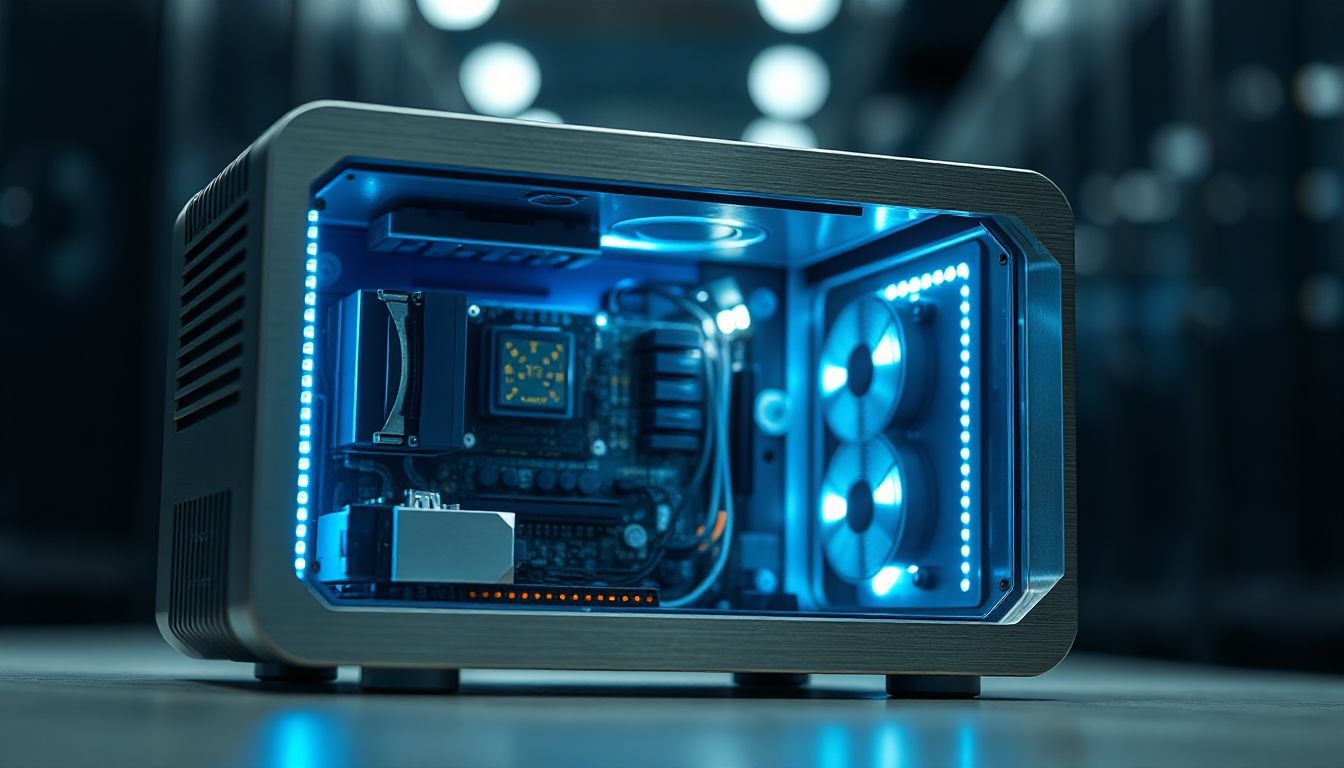In factories where machines hum all day and dust flies everywhere, industrial PCs keep things running smooth. These tough machines handle heat, shakes, and rough spots that would wreck your home computer in minutes. As more factories add smart tech like sensors and robots, picking the right industrial PC manufacturers matters more than ever. You need gear that lasts and fits your setup.

Understanding the Industrial PC Landscape: Key Manufacturers and Market Trends
The world of industrial PCs buzzes with players from different spots. Many top industrial PC manufacturers hail from Taiwan for their quick builds, Germany for precision engineering, and North America for big innovation pushes. This mix creates a market full of choices, but it also means you have to know what sets the best apart. Look at factors like build quality, support, and how well they match your needs.
Market Drivers Fueling IPC Demand
Factories chase Industry 4.0 to link machines and data in real time. AI tools at the edge crunch numbers right where the action happens, cutting delays. Power plants and water systems rely on these PCs for quick choices that keep lights on or water flowing. A 2023 study from IDC shows the IPC market growing 8% yearly, driven by these shifts.
Core Differences: IPCs vs. Commercial Off-the-Shelf (COTS) Hardware
Industrial PCs shrug off bumps that crash office desktops. They use strong cases to fight dust and water, with seals that hit IP65 or better. Temps from -40°C to 85°C? No sweat for them, unlike COTS gear that quits at 50°C. Lifespans stretch to 10 years, so you skip constant upgrades.
Major Global IPC Manufacturer Categories
Big firms like Advantech offer full lines for any job. Rugged pros such as Getac focus on gear that takes real abuse in the field. Then there are embedded experts like Kontron, who pack power into tiny boxes for machine brains. Each type fits different factory pains.
Essential Criteria for Evaluating Top Industrial PC Manufacturers
You want more than a shiny box. Check how well a manufacturer scores on tough builds, steady supplies, and easy connections. Certifications and real tests prove their claims. Strong picks save you headaches down the line.
Hardware Ruggedization and Environmental Compliance
Top industrial PC manufacturers use MIL-STD-810 tests to mimic drops, shakes, and blasts. IP67 ratings mean full dust block and short dips in water. Operating ranges often cover freezing colds to baking heats. Match your spot’s needs exactly—say IP65 for oily shops, IP67 for wet ones. This keeps your setup alive longer.
Product Longevity and Supply Chain Stability
Good makers promise 7-10 year support for parts, so your line doesn’t halt for swaps. Chip shortages in 2022 hit hard, but reliable ones like Siemens kept stock flowing. A VDC Research report notes IPCs last twice as long as home PCs on average. Pick firms with clear roadmaps to dodge future snags.
Connectivity Options and I/O Flexibility
You need ports for old gear like RS-232 and new ones like 10Gb Ethernet. CAN bus links factory controls, while PCIe slots add cards for extras. Modular designs from makers like Beckhoff let you tweak without full rebuilds. This flexibility boosts your whole system.
Performance Metrics: Processing Power and System Integration Capabilities
Power counts, but it must fit the rough world of plants. CPUs from Intel or AMD run fast without fans in many cases. Integration means the PC plays nice with your sensors and software. Balance speed and toughness for best results.
Thermal Management Solutions: Fanless vs. Active Cooling
Fanless setups use metal shells to spread heat, quiet and dust-free for clean rooms. Active fans pull in filtered air for hotter jobs, but filters clog fast. Fanless wins for reliability—less to break. In dusty mills, they cut downtime by 30%, per user tests.
Edge Computing Readiness and GPU Integration
Edge needs quick AI without cloud lags. Some industrial PC manufacturers pack NVIDIA GPUs for spotting defects in assembly lines. Take automated checks in car plants: a Jetson module spots bad welds in seconds. This setup speeds output and cuts waste.
Software and Firmware Support Ecosystem
Beyond chips, look for easy BIOS tweaks for your tasks. Pre-loaded Windows IoT or Linux variants save setup time. Tools for remote fixes help when gear sits in hard spots. Makers like Advantech offer updates for years, keeping your fleet secure.
Specialized IPC Segments: Finding the Right Fit
Not all industrial PCs suit every task. Some shine in control rooms, others in trucks. Match the type to your work for peak performance. This narrows your search smartly.
Panel PCs and Human-Machine Interface (HMI) Specialists
These mount on walls with bright screens that cut through shop glare. Touch tech resists gloves and spills. Firms like Advantech lead with projected capacitive displays for quick operator inputs. In food plants, they handle washdowns without a hitch.
Embedded Systems and DIN-Rail Mount Manufacturers
Compact boxes snap onto rails in tight cabinets. They control motors or read sensors non-stop. Kontron’s small units pack quad-core power in half the space. Ideal for PLC upgrades in old machines.
Ruggedized Mobile and Vehicle-Mount Computers
For forklifts or military trucks, these take jolts and dirt. Wide temp swings from -30°C to 70°C keep them going. Panasonic’s Toughbooks survive 5-foot drops. In mines, they track loads amid dust storms.

Conclusion: Securing Your Automation Future with the Right Manufacturer
Choosing top industrial PC manufacturers locks in reliable ops for years. Skip cheap fixes that fail fast—go for proven ruggedness and support. Key must-haves: long product life, solid environmental certs, and flexible ports.
To start, list your environment’s demands. Then vet three to five makers against these points. Reach out for demos or case studies. Your factory’s edge waits on this smart pick.
https://www.waysion.com/rugged-tablet/leading-industrial-pc-manufacturers/
评论
发表评论